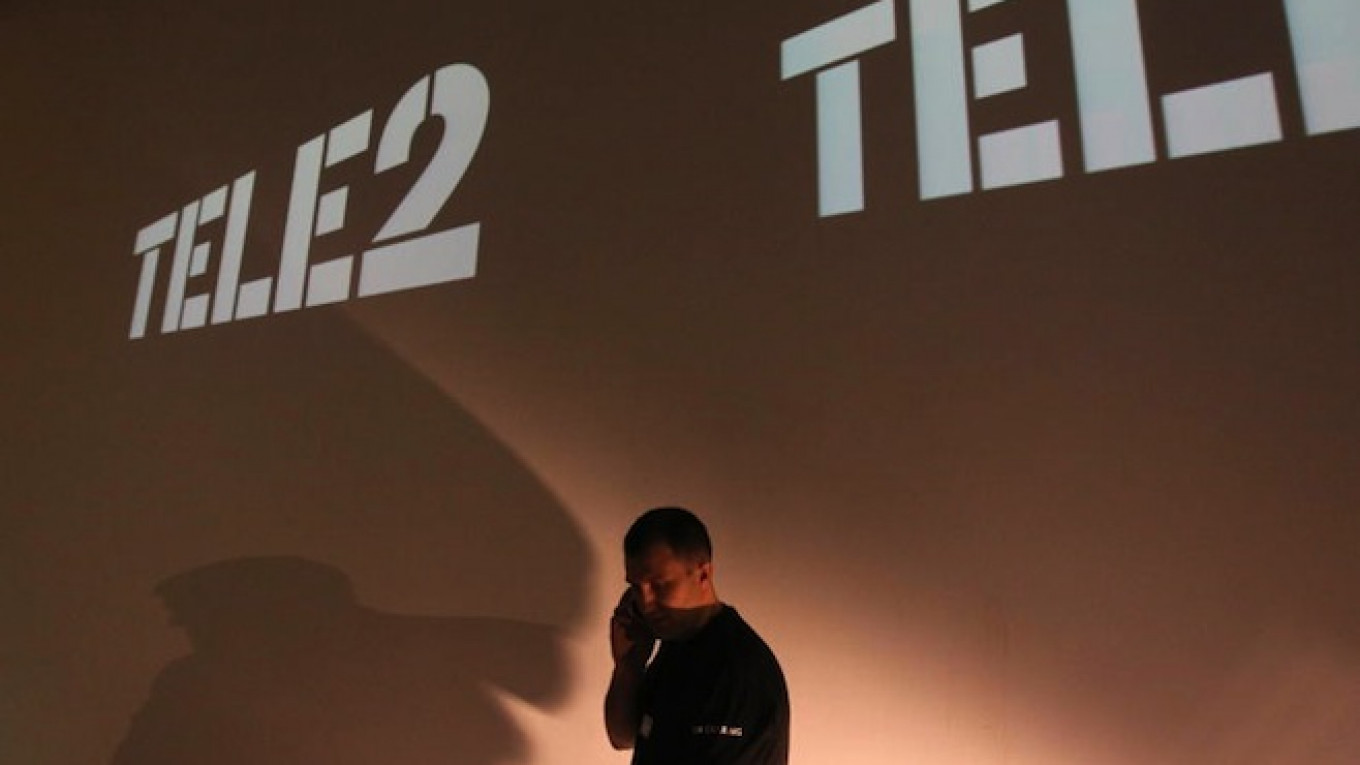Mobile operators are offering better conditions to their users in Moscow before a competitor, Tele2, enters the market on Oct. 22.
Russia's “big three” mobile companies — MTS, MegaFon and VimpelCom, which operates the Beeline brand — are ready to cut the cost of their tariffs by up to 30 percent after Tele2 launches services in Moscow, the Kommersant newspaper reported Wednesday, citing an unidentified top manager at one of the companies.
The changes come as Tele2, a “discount operator” that already operates in over 60 Russian regions and has more than 35 million subscribers, plans to undercut its rivals in Moscow with cheaper tariffs and promises of no hidden costs.
Tele2 unveiled its tariffs on Wednesday, one day before its official launch in Moscow.
Its “orange” tariff offers a rate of 1 ruble (less than $0.02) for all incoming and outgoing calls inside Russia. Three “black” tariffs charge a monthly fixed fee of 99 rubles ($1.60), 299 rubles ($4.75) or 599 rubles ($9.50).
According to Roman Volodin, Tele2's chief marketing and product officer, the company's rates are 40 percent lower than those offered by the big three, the Vedomosti newspaper reported Wednesday.
With competition on Russia's biggest mobile market about to intensify, the big three responded by introducing better offers for their subscribers.
MegaFon on Tuesday said in a statement that it would revise its smartphone tariffs so most customers can call other MegaFon users across Russia for free from Nov. 2. The company currently offers free calls to others on the same network only for local calls.
VimpelCom is also adapting. The company last month offered its clients several months of free mobile 4G Internet and allowed some users share their tariffs with up to five additional numbers, according to a company statement.
MTS declined to comment, and has not released any information on changing tariffs.
According to the RBC news agency, Tele2 has spent up to 10 billion rubles ($160 million) on infrastructure and advertising ahead of its launch in the capital. A huge promotional campaign has resulted in 30,000 pre-orders in Moscow for Tele2 SIM cards so far, according to marketing director Volodin.
The company hopes its cheaper tariffs will quickly expand its client base in the capital. But its competitors anticipate that the company's growth will be constrained by the fact that it will not use GSM signal infrastructure.
Tele2 will use only 3G and 4G networks in Moscow, meaning that its service will be available on Oct.22 to about 95 percent of Moscow and 75 percent of the surrounding region, and only to smartphone owners — which currently account for about 60 percent of mobile users in the capital, Tele2's press release said.
However, analysts say Tele2 could still attract up to 20 percent of Moscow's mobile subscribers within the next three years.
Contact the author at a.bazenkova@imedia.ru
A Message from The Moscow Times:
Dear readers,
We are facing unprecedented challenges. Russia's Prosecutor General's Office has designated The Moscow Times as an "undesirable" organization, criminalizing our work and putting our staff at risk of prosecution. This follows our earlier unjust labeling as a "foreign agent."
These actions are direct attempts to silence independent journalism in Russia. The authorities claim our work "discredits the decisions of the Russian leadership." We see things differently: we strive to provide accurate, unbiased reporting on Russia.
We, the journalists of The Moscow Times, refuse to be silenced. But to continue our work, we need your help.
Your support, no matter how small, makes a world of difference. If you can, please support us monthly starting from just $2. It's quick to set up, and every contribution makes a significant impact.
By supporting The Moscow Times, you're defending open, independent journalism in the face of repression. Thank you for standing with us.
Remind me later.






